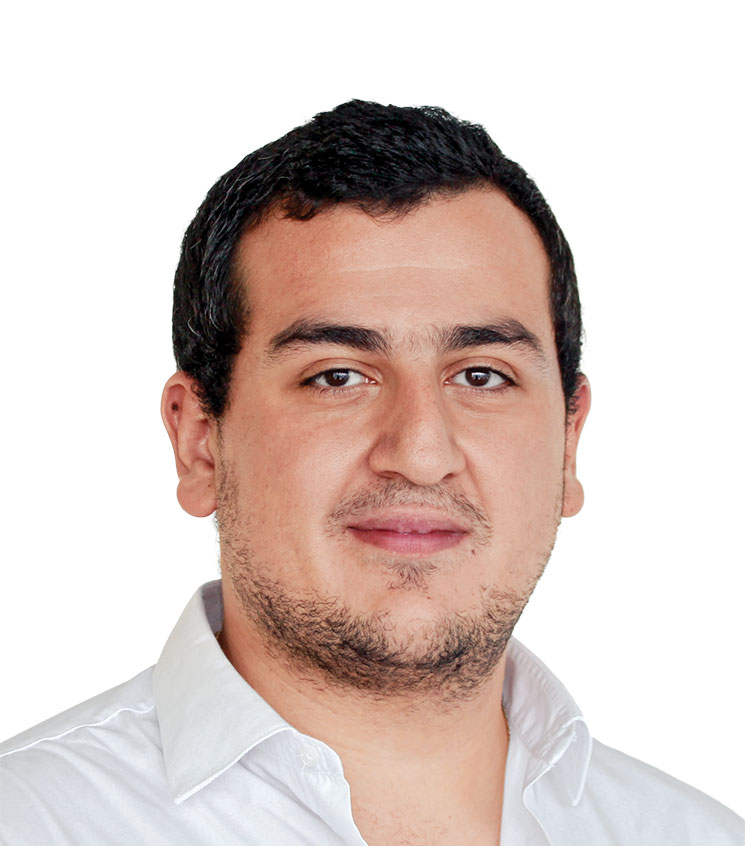Eliminating the Guessing Game From Logistics

STORY INLINE POST
Q: With the e-commerce boom, last-mile delivery has taken the spotlight. Why did Pikkop decide to focus on first-mile logistics?
A: Last-mile logistics is already crowded. In recent years, we have seen a great deal of innovation within the last-mile sector, from GPS technologies to drones and autonomous vehicles. There was not much room to really innovate there. However, we saw an opportunity in first-mile logistics, where there is little innovation. First-mile logistics involves moving products from a manufacturer or retailer’s warehouse to a holding center.
Pikkop is a picking, packing and shipping expert. We pick products from our clients, pack them and use our algorithms to find the best shipping methods. The first-mile process has seen the least amount of innovation and several companies continue to use obsolete procedures. Last mile depends on the first mile. If the first mile is frictionless, last-mile delivery will be impeccable.
Q: What does Pikkop’s infrastructure in Mexico look like?
A: In Mexico City, we have three micro-fulfillment centers in the Veronica Anzures borough. In addition, Pikkop has a traditional 2,500m2 warehouse in Cuautitlan Izcalli, State of Mexico, where we hold our backup inventory, pallets and higher volumes. These centers are in strategic locations in Mexico City, allowing us to have the inventory closer to consumers and reduce the last-mile journey.
Q: What technological tools and best practices does Pikkop implement to guarantee the best service for clients and final consumers?
A: Most decision-making is still done by humans. Pikkop wants to remove humans from the decision-making process and change logistics from a guessing game to a concrete, controllable game. We ship thousands of packages every month and use data to figure out and optimize the first-mile operation, allowing us to hand the product to the right last-mile carrier. For example, Pikkop finds picking locations, brings products to our warehouse and packs them with the proper material to optimize shipping volume. Our algorithm then takes only seconds to find the best shipping method or last-mile partner. From quoting tools to routing technologies and automated billing, Pikkop is driven by technology, optimization and efficiency.
Q: In the competitive e-commerce landscape, how relevant are efficient deliveries?
A: Large players like Amazon and Walmart have set expectations high. Customers want home delivery and they want it fast. However, there is a downside to this kind of delivery. The faster delivery we want, the more expensive it becomes and the higher impact it has on the environment. At Pikkop, the idea is not just to follow the trends; we want to provide a good experience, which does not necessarily mean the fastest delivery. We aim to give clients complete value for their money and time. Pikkop works to find a balance between speed and cost, without compromising experience. This is a challenging objective, considering the growth of e-commerce in Mexico.
Q: How has Pikkop grown and changed its operations since the creation of the company five years ago?
A: Pikkop has been operating in the Mexican market for five years. Initially, Pikkop entered the market with a C2C mobile application. We were the first company to launch an app in which you could take a photo of your product and then ship it without leaving your house. While C2C was a small market, we saw room for growth. Later, Pikkop started building B2C platforms so businesses could ship products faster, safely and at a smaller cost and with transparency.
Our focus is not on growth because the market itself is growing exponentially. The plan is to keep the business operating and take advantage of the growth in the e-commerce and logistics markets. Pikkop is more focused on innovation and removing relevant frictions. During my more than 25 years in the global logistics and supply chain business, I have learned best practices and the idea is to implement them in Mexico, improving efficiency, reducing costs and offering a great experience to users.
Q: What partnerships does Pikkop have to offer the best prices?
A: Last mile depends on the first mile. Pikkop works with established last-mile partners, such as FedEx, UPS and DHL, in addition to regional carriers like Paquetexpress, Redpack and Estafeta. We also work with small last-mile partners, such as companies with 5 to 30 motorcycles that are focused on specific areas. Pikkop also has a group of cyclists that helps us do local deliveries within 7km from our micro-fulfillment centers, reducing costs even further. We are building a last-mile platform where we can onboard different last-mile providers and offer a seamless experience to users. We are open to working with last-mile providers who are focused on offering the best experience.
Q: How does Pikkop’s automatic fulfillment quotation tool work and what are the main benefits it offers to clients?
A: Often, business owners are not logistics experts and they can find shipping to be confusing. Obtaining a fulfillment quote used to be slow, unclear and complicated. Pikkop built a simple tool where users add data and get immediate, accurate quotes for their logistics needs. With the automatic fulfillment quote tool, one can figure out how much shipping will cost, taking into account packing costs, delivery costs and storage if needed. Pikkop builds tools to take away the guessing game from logistics. Technology helps companies make more confident, precise decisions.
Pikkop offers comprehensive logistics solutions to e-commerce retailers and end users within the Mexico City metropolitan area. The company is focused on ‘first-mile’ logistics and helps retailers ship their products professionally.

 By Antonio Gozain | Senior Journalist and Industry Analyst -
Fri, 07/15/2022 - 10:00
By Antonio Gozain | Senior Journalist and Industry Analyst -
Fri, 07/15/2022 - 10:00
















